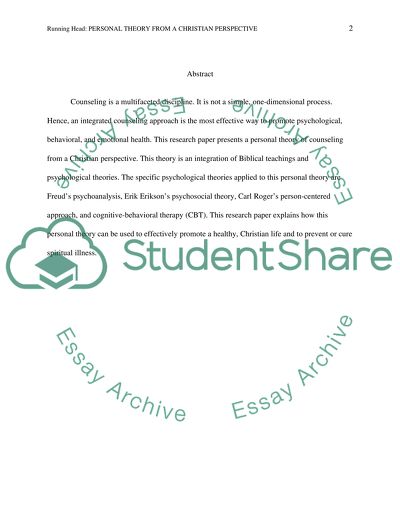Cite this document
(“Personal Theory from a Christian Perspective Research Paper”, n.d.)
Retrieved from https://studentshare.org/psychology/1404201-personal-theory-from-a-christian-perspective
Retrieved from https://studentshare.org/psychology/1404201-personal-theory-from-a-christian-perspective
(Personal Theory from a Christian Perspective Research Paper)
https://studentshare.org/psychology/1404201-personal-theory-from-a-christian-perspective.
https://studentshare.org/psychology/1404201-personal-theory-from-a-christian-perspective.
“Personal Theory from a Christian Perspective Research Paper”, n.d. https://studentshare.org/psychology/1404201-personal-theory-from-a-christian-perspective.


